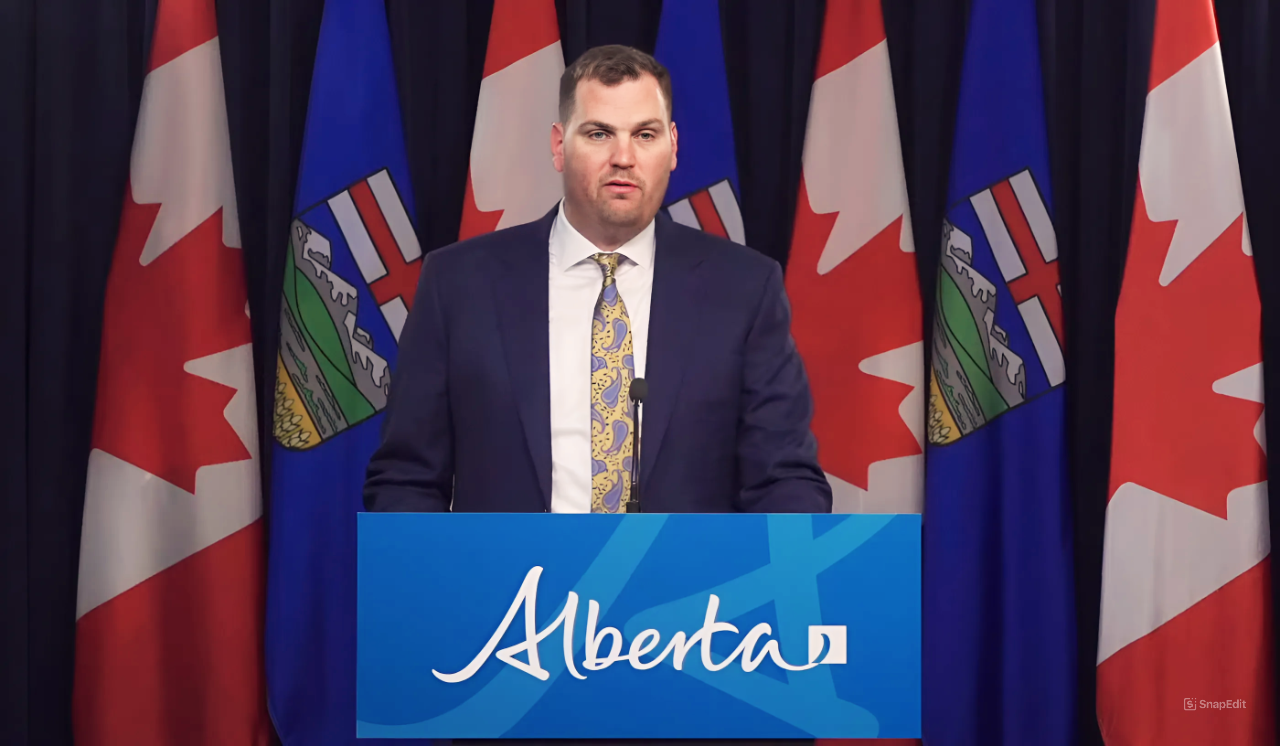Today, Government House Leader Joseph Schow held a comprehensive media conference to provide an update on the progress made by the Alberta government during the recently concluded spring session. The session, which spanned from late February to May, saw the passage of 133 bills and significant advancements on multiple platform commitments.
Schow highlighted the government’s fiscal responsibility, emphasizing the balanced Budget 2024. This marks the third consecutive balanced budget for Alberta, aimed at fostering provincial growth while prioritizing safe communities, robust healthcare, and efficient resource management. The budget also achieved a new milestone, bringing the Heritage Savings and Trust Fund to an all-time high of $22.1 billion.
A cornerstone of the spring session was the focus on public safety. Schow elaborated on the Public Safety Statutes Amendment Act, which introduces 24/7 ankle bracelet monitoring for offenders and individuals on bail who pose a risk to public safety. This legislation also paves the way for an independent police agency designed to address the evolving safety needs of Alberta communities, thereby enhancing frontline policing efforts.
The government also passed the Emergency Statutes Amendment Act, aimed at ensuring a rapid and coordinated response to emergency situations. This act enhances collaboration across all government levels, ensuring swift and effective action during emergencies such as wildfires and other crises.
Schow underscored significant reforms in the healthcare sector through the Health Statutes Amendment Act. This legislation restructures Alberta’s healthcare system from a single regional health authority to an integrated network of four provincial health agencies. These agencies will oversee acute care, primary care, continuing care, and mental health and addictions, aiming to provide comprehensive and accessible care across the province.
Additionally, the Canadian Centre for Recovery Excellence Act was introduced to bolster the province’s commitment to mental health and addiction services, reinforcing a recovery-based model for care.
Another pivotal piece of legislation was the first Alberta Sovereignty Within a United Canada Act resolution. This act aims to protect Albertans from potential energy shortages and rising electricity costs linked to federal clean electricity regulations, which the provincial government deems unconstitutional.
During the Q&A session, Schow addressed concerns regarding several unexpected legislative moves, such as easing the process of overturning municipal bylaws and vetting university research funding based on perceived ideology. He defended these measures as necessary for delineating clear boundaries between provincial, federal, and municipal authorities. Schow emphasized the government’s role in acting swiftly and effectively during emergencies and stressed the importance of provincial autonomy in achieving their mandate.
Responding to concerns about the centralization of power, Schow rejected the notion, instead framing the government’s actions as efforts to ensure effective governance and clear jurisdictional boundaries. He highlighted the necessity of quick, decisive action during emergencies and the importance of collaboration across government levels.
Addressing criticisms regarding the perceived insufficiency of affordability measures, Schow pointed to Alberta’s low taxation levels and the temporary removal of the fuel tax as examples of the government’s commitment to affordability. He assured that affordability remains a priority and that future legislation could address these concerns further.

